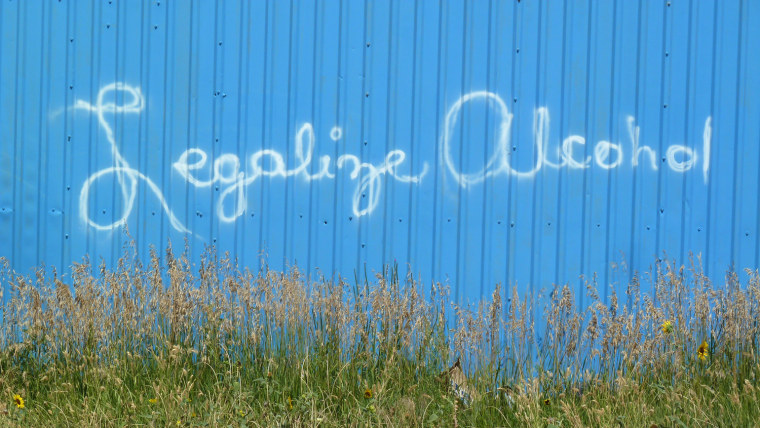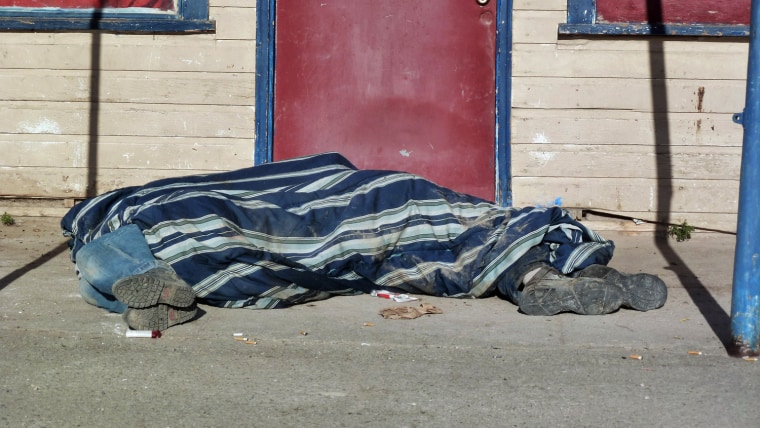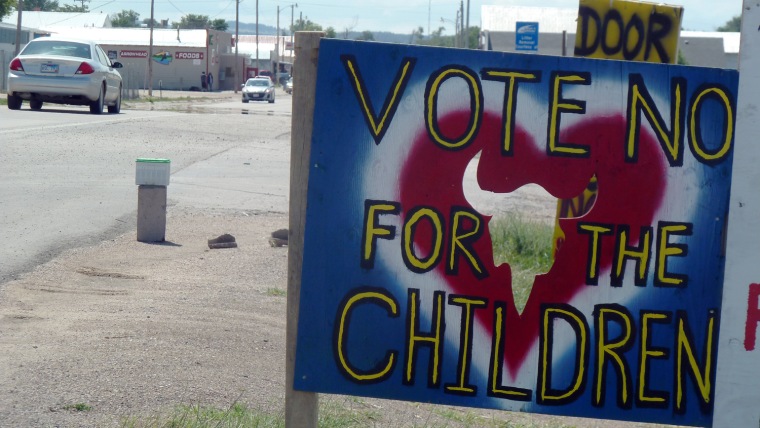Plagued by joblessness and alcoholism, the people of Pine Ridge Indian Reservation considered legalizing the sale of alcohol on Tuesday, a last-ditch move for members of the Oglala Sioux Tribe whose land remains the last place in South Dakota’s Indian territory where the sale of liquor is contraband.
“Alcohol is here. They’re kidding themselves if they think we’re a dry reservation,” Larry Eagle Bull, a council member who supported the vote, told the Associated Press. The man identified himself as a recovering alcoholic, but said what people on the reservation need is more knowledge. “Prohibition is not working. Alcohol is going to stay. We need to get out people educated about it.”
Not everyone is as enthusiastic on the reservation of more than 18,000, where discussions of alcohol are informed by a tragic past and disadvantaged present. Just under six percent of the American Indian population of the reservation has a bachelor’s degree, according to the 2000 census. Twenty-seven percent have a high school diploma.
The Department of the Interior put the reservation's unemployment rate at 89 percent in 2005.
The proposal brought protests on Monday, with some saying the measure would do nothing to curtail alcohol consumption. Critics say expanding liquor sales onto the reservation will only exacerbate existing abuses.

“I’ve been there myself. I was an alcoholic for many years of my life, and it’s destroyed a lot of my personal existence, of my life,” protester Galeson Eagle Star told local NBC News affiliate KNBN. The measure, he said, is “not going to stop kids, because they’ll go to Whiteclay, it’s two miles from here.”
He was talking about the main suppliers of alcohol to tribal members on the reservation, four innocuous looking liquor stores a short, two-mile drive away in the town of Whiteclay, Neb.
The co-owner of the Jumping Eagle, one of that clump of stores just over the border, anticipated a narrow vote.
“I think the vote, one way or the other, is going to be close,” store owner Stuart Kozal told the AP.
The four retailers in Whiteclay sold a total of 162,153 cases of alcoholic beverages in 2012, according to the Nebraska Liquor Control Commission, containing about 3.8 million 12oz cans or bottles. The 364,799 gallons of booze sold in the town with a population of about a dozen people brought in more than $300,000 in state and federal excise taxes that year, the most recent for which data is available.
“There’s no law enforcement, the nearest town is actually 21 miles away,” said Jim Esch, an Omaha attorney who has worked with a group called the Whiteclay Awareness Committee. “The only time there’s a police presence is when there’s a protest or this year to make sure beer was delivered safely. They escorted in beer trucks.”
Legalization alone might not be enough to turn back the corrosive effects alcoholism, unemployment, and lack of education have had on the fabric of tribal society – even if liquor stores on the reservation did succeed in driving those in Whiteclay out of business.

“A ton of people are getting rich, and it’s hard to say if they took that over that anything would really change,” Esch said. “If they legalize it there, I’m not really sure what that would do to help.”
The 14-page tribal council draft of the proposed law calls for the creation of a new department to administer the law, and oversee the opening and operation of liquor stores on the reservation, according to the AP. The plan would also implement two detoxification facilities at opposite ends of the reservation.
Among those who said they oppose the legalization plan is tribal president Bryan Brewer.
“It’s destroying our families and children,” Brewer said, according to the AP. “It’s affected every family on the reservation. If it's legal, I anticipate the use will go up. Abuse of women and children will go up. A lot of people are saying we'll have all this money for treatment, and that's not true."
The Associated Press contributed to this report.
Related:
